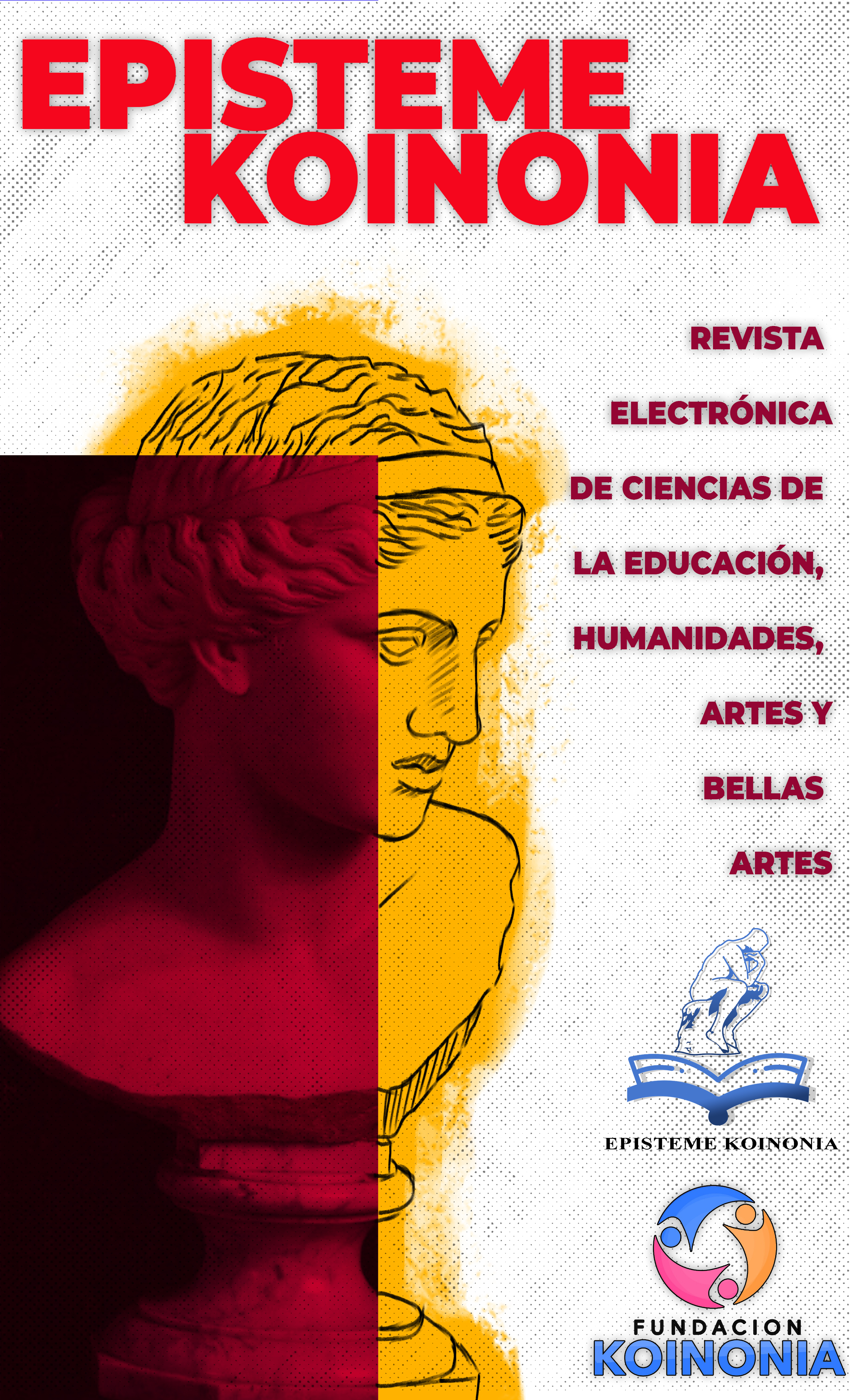Development of critical thinking in the natural sciences through collaborative strategies. A systematic review
DOI:
https://doi.org/10.35381/e.k.v8i16.4526Keywords:
Collaborative learning, scientific competencies, critical thinking, Natural Sciences, systematic review, (UNESCO Thesaurus)Abstract
This systematic review analyzed collaborative strategies focused on the competency-based approach and their contribution to the development of critical thinking in the subject of Natural Sciences, considering different qualitative and quantitative methodological approaches and the content analysis method. The findings of 22 scientific articles selected from different journals indexed in international databases were compiled and compared. The results showed a generally positive attitude towards the use of the competency-based approach in the area of Natural Sciences. It was concluded that, in spite of the promising results, the evaluations carried out in different Latin American contexts have not shown a conclusive effectiveness in achieving the objectives proposed by the competency-based approach for the promotion of critical thinking in Natural Sciences.
Downloads
References
Acosta, R., Martín, A., Y Hernández, A. (2022). Nivel de satisfacción en estudiantes de secundaria con el uso de aprendizaje colaborativo mediado por las TIC en el aula de Ciencias Naturales. Revista Electrónica Educare, 26(3), 1-18. https://n9.cl/xjvtz1
Cárdenas, J., Rodríguez, C., Pérez, J., y Valencia, X. (2022). Desarrollo del pensamiento crítico: Metodología para fomentar el aprendizaje en Ingeniería. Revista de Ciencias Sociales (Ve), XXVIII(4), 512-530. https://n9.cl/xue3i
Carrera, P., Alencastre, J., Parra, E., y Rodas, G. (2024). Exploring the use of technological tools to enhance collaborative learning in higher education Institutions. Pakistan Journal of Life and Social Sciences (PJLSS), 22(2), 574-589. https://n9.cl/rn1n2
Castañeda, J., Pinto, B., y Sojos, A. (2024). Fomentando el pensamiento crítico mediante aprendizaje colaborativo y cooperativo: Estrategias para mejorar la enseñanza. Revista Scientific, 9(31), 126-143. https://n9.cl/kwn6o
Castro, M., Chura, G., Verástegui, A., y Calderón, S. (2023). Estrategias cognitivas y socioafectivas en el pensamiento crítico de profesores peruanos. Mendive. Revista de Educación, 21(1), 1-11. https://n9.cl/g6vye
Erwis, F., Jixiong, C., Rahayu, N., Raharja, A., y Zebua, R. (2024). Use of Augmented Reality (AR) in mobile learning for Natural Science lessons. Journal of Social Science Utilizing Technology, 2(1), 116-126. https://n9.cl/rn1n2
García, A., y Gaviria, A. (2021). Creencias sobre las interacciones docente-estudiante en el aprendizaje colaborativo. Estudios pedagógicos (Valdivia), 47(3), 303-319. https://n9.cl/hnuoa
Gillies, R. M. (2016). Cooperative learning: Review of research and practice. Australian Journal of Teacher Education, 41(3), 39-54. https://n9.cl/i6b3oz
Huaca, C., Figueroa, M., y Flores, K. (2023). Pensamiento crítico y estrategias de aprendizaje de los estudiantes del VII ciclo de la escuela profesional de lengua española, Universidad Nacional de Educación, 2020. Revista Franz Tamayo, 5(12), 31-53. https://n9.cl/r6zc3
Jaramillo, L. (2019). Las ciencias naturales como un saber integrador. Sophia, Colección de Filosofía de la Educación, (26), 199-221. https://n9.cl/ltsww
Nickayin, S., Jahelka, A., Ye, S., Perrone, F., y Salvati, L. (2023). Planning for just cities with nature-based solutions: Sustainability and socio-environmental inequalities in San José de Chamanga, Ecuador. Land, 12(3), 1-25. https://n9.cl/ietcxw
López, M., Moreno, E., Uyaguari, J., y Barrera, M. (2022). El desarrollo del pensamiento crítico en el aula: testimonios de docentes ecuatorianos de excelencia. Areté, 8(15), 161-180. https://n9.cl/v1xn3
Medina, C. (2022). Estrategias metacognitivas en el pensamiento crítico de estudiantes universitarios de Arquitectura, Lima-Perú. Horizontes Revista de Investigación en Ciencias de la Educación, 6(23), 693-702. https://n9.cl/s6jb3
Menacho, L. (2021). Estrategias colaborativas: aprendizaje compartido para el desarrollo de la comprensión lectora en estudiantes de educación primaria. Revista de Innovación Educativa, 25(3), 1-16. https://n9.cl/r87jrf
Núñez, L., Gallardo, D., Aliaga, A., y Diaz, J. (2020). Estrategias didácticas en el desarrollo del pensamiento crítico en estudiantes de educación básica. Eleuthera, 22(2), 31-50. https://n9.cl/nxa93
Olivares, J., Campos, M., y Osuna, E. (2023). La interdisciplinariedad del diseño mediante el aprendizaje colaborativo y basado en proyectos. Revista Iberoamericana de Didáctica e Innovación, 15(3), 125-140. https://n9.cl/erfdq
Orbegoso, L., Vásquez, I., Ledesma, F., y Chunga, W. (2024). Carga cognitiva en el aprendizaje colaborativo en el área de ciencias. Revista de Ciencias Sociales, 12(1), 385-398. https://n9.cl/gipfc
Pérez, G., Bazalar, J., y Arhuis, W. (2021). Diagnóstico del pensamiento crítico de estudiantes de educación primaria de Chimbote, Perú. Revista Electrónica Educare, 25(1), 1-11. https://n9.cl/mt441
Saavedra, L. (2024). Pensamiento crítico en estudiantes de educación básica regular. Horizontes Revista de Investigación en Ciencias de la Educación, 8(33), 809-819. https://n9.cl/q2aa3
Suendarti, M., y Virgana, V. (2022). Elevating Natural Science learning achievement: cooperative learning and learning interest. Journal of Education and Learning (EduLearn), 16(1), 14-120. https://n9.cl/c3ps4p
UNESCO. (2023). Global Education Monitoring Report 2023: Technology in education: A tool on whose terms? https://n9.cl/hhzk3u
Zamora, N. (2020). Estrategias para el aprendizaje colaborativo y los estilos de solución de conflictos escolares en el área de ciencias. Revista San Gregorio, (40), 90-105. https://n9.cl/7xqd0
Published
How to Cite
Issue
Section
License
Copyright (c) 2025 José Eduardo Aguirre-Coello, Mary López-Helguero

This work is licensed under a Creative Commons Attribution-NonCommercial-ShareAlike 4.0 International License.
CC BY-NC-SA : Esta licencia permite a los reutilizadores distribuir, remezclar, adaptar y construir sobre el material en cualquier medio o formato solo con fines no comerciales, y solo siempre y cuando se dé la atribución al creador. Si remezcla, adapta o construye sobre el material, debe licenciar el material modificado bajo términos idénticos.
OAI-PMH URL: https://fundacionkoinonia.com.ve/ojs/index.php/epistemekoinonia/oai







